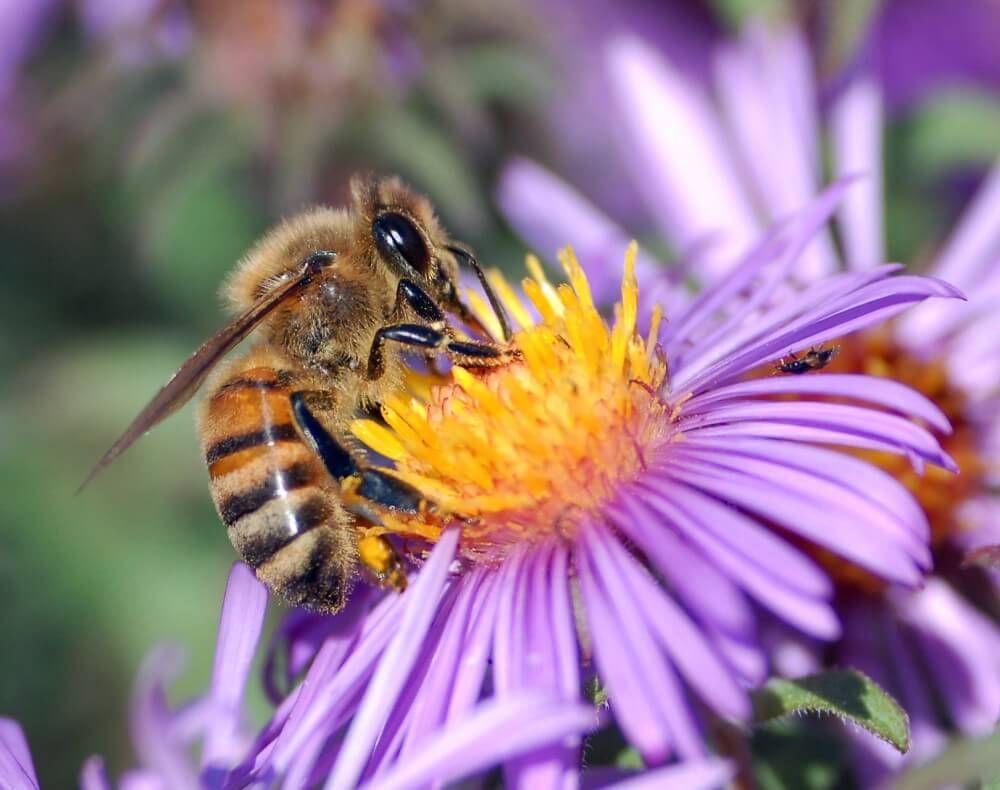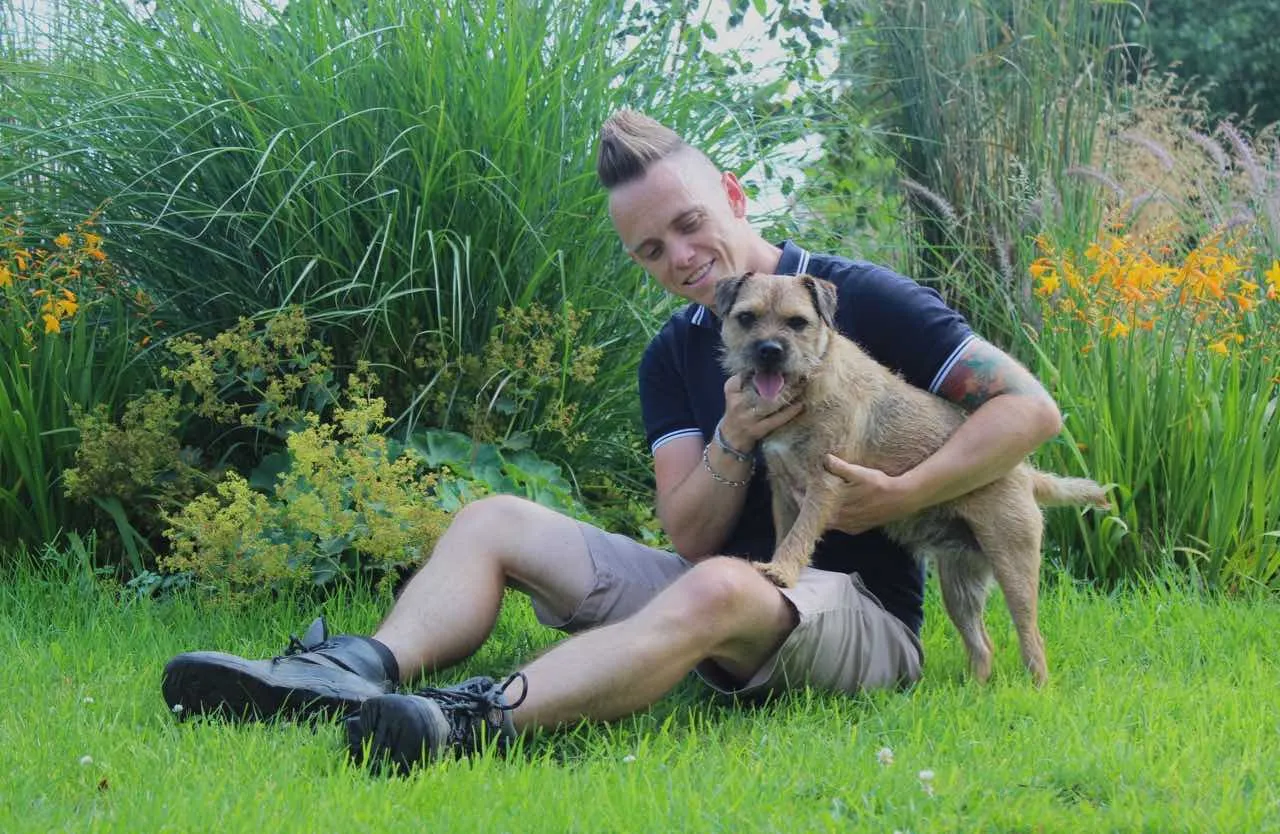Hi @deecjay
Thanks for your comment. Oh how wonderful! You have miner bees! Don’t panic you don’t need to get rid of them, they actually help aerate your soil and are really good for the environment and no bother. So my advice would be to leave them well alone!

Miner bees, also known as mining bees, are solitary bees commonly found in the UK. Their lifecycle typically consists of several stages:
1. Egg Stage
Miner bees start their lifecycle when a female bee lays eggs in underground burrows. These burrows can be found in various soil types, including sandy or loamy soil. Each egg is placed in its own chamber within the burrow.
2. Larval Stage
Once the eggs hatch, the miner bee larvae emerge. They feed on a mixture of nectar and pollen provided by the female bee. During this stage, the larvae grow and develop within their individual chambers.
3. Pupal Stage
After the larval stage, the miner bee larvae spin a silk cocoon around themselves within the burrow. This cocoon protects them during their pupal stage. Inside the cocoon, they undergo metamorphosis and transform into adult bees.
4. Pre-Adult Stage
Miner bees spend the winter as pre-adults in their underground burrows. They remain dormant during the colder months, waiting for warmer temperatures.
5. Adult Stage
With the arrival of spring or early summer, the miner bees emerge from their underground burrows as adults. They are typically active for a few weeks to a couple of months, depending on the species and environmental conditions.
6. Mating and Reproduction
Adult miner bees are primarily focused on mating and reproduction. Females will search for suitable nesting sites to lay their eggs in, often digging new burrows or using existing ones. Males will engage in territorial behaviors and attempt to mate with receptive females.
7. Nesting and Egg-Laying
Once the female miner bee finds a suitable nesting site, she lays her eggs in individual chambers within the burrow. She provides a mixture of nectar and pollen as a food source for the developing larvae.
8. Repeat Lifecycle
The adult miner bees will die off after completing their reproductive duties, and the next generation of eggs and larvae will continue the cycle by developing within the burrows throughout the summer and early autumn.
It's important to note that miner bees are beneficial pollinators and are not aggressive like some social bee species. They play a vital role in pollinating various plants and contribute to ecosystem health in the UK.
Do miner bees sting?
Female miner bees can sting but only if threatened. They are pretty docile for the most part.
So fingers crossed you will accept them as a valuable part of your garden and the benefits they bring!
happy gardening.
Lee
Hi @deecjay
Thanks for your comment. Oh how wonderful! You have miner bees! Don’t panic you don’t need to get rid of them, they actually help aerate your soil and are really good for the environment and no bother. So my advice would be to leave them well alone!

Miner bees, also known as mining bees, are solitary bees commonly found in the UK. Their lifecycle typically consists of several stages:
1. Egg Stage
Miner bees start their lifecycle when a female bee lays eggs in underground burrows. These burrows can be found in various soil types, including sandy or loamy soil. Each egg is placed in its own chamber within the burrow.
2. Larval Stage
Once the eggs hatch, the miner bee larvae emerge. They feed on a mixture of nectar and pollen provided by the female bee. During this stage, the larvae grow and develop within their individual chambers.
3. Pupal Stage
After the larval stage, the miner bee larvae spin a silk cocoon around themselves within the burrow. This cocoon protects them during their pupal stage. Inside the cocoon, they undergo metamorphosis and transform into adult bees.
4. Pre-Adult Stage
Miner bees spend the winter as pre-adults in their underground burrows. They remain dormant during the colder months, waiting for warmer temperatures.
5. Adult Stage
With the arrival of spring or early summer, the miner bees emerge from their underground burrows as adults. They are typically active for a few weeks to a couple of months, depending on the species and environmental conditions.
6. Mating and Reproduction
Adult miner bees are primarily focused on mating and reproduction. Females will search for suitable nesting sites to lay their eggs in, often digging new burrows or using existing ones. Males will engage in territorial behaviors and attempt to mate with receptive females.
7. Nesting and Egg-Laying
Once the female miner bee finds a suitable nesting site, she lays her eggs in individual chambers within the burrow. She provides a mixture of nectar and pollen as a food source for the developing larvae.
8. Repeat Lifecycle
The adult miner bees will die off after completing their reproductive duties, and the next generation of eggs and larvae will continue the cycle by developing within the burrows throughout the summer and early autumn.
It's important to note that miner bees are beneficial pollinators and are not aggressive like some social bee species. They play a vital role in pollinating various plants and contribute to ecosystem health in the UK.
Do miner bees sting?
Female miner bees can sting but only if threatened. They are pretty docile for the most part.
So fingers crossed you will accept them as a valuable part of your garden and the benefits they bring!
happy gardening.
Lee
 Lee Burkhill: Award Winning Designer & BBC 1's Garden Rescue Presenters Official Blog
Lee Burkhill: Award Winning Designer & BBC 1's Garden Rescue Presenters Official Blog



